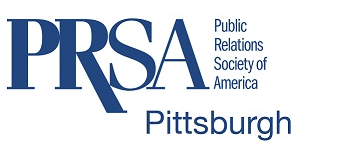Event Recap – GIFs, Memes, Hashtags and Celebrities – What content can brands create and share and what should they avoid?
Anxiety sets it. You’re frustrated, nervous and possibly already feeling defeated and defensive. We’ve all been there, but it doesn’t have to be that way.
On Wednesday, June 29, three intellectual property attorneys from The Webb Law Firm took time to speak with the PRSA Pittsburgh Chapter at the Rivers Club to better explain some of the intricacies of law when it comes to marketing and PR.
Cecilia Dickson, Christian Ehret and Chris Sherwin were led in the discussion by moderator and PRSA President Steve Radick. The group covered everything from the unique challenges associated with the Olympics, to how to determine who is a celebrity.
When it comes to getting what you want, it all boils down to the fact that knowledge is power. The more you are aware of the laws, the easier the process of approval will be.
“Doing a little bit of research upfront so you can go in with a few talking points is important,” stated Sherwin. “There are a lot of great websites that you can reference and there are public relations organizations that have aggregations of trademark law that you can go on to get a bullet point to say ‘I think we can use that.’ Present it that you have done the research. If you go with definitive questions and they are able to give you a definitive answer, you are able to wash your hands of any blame.”
First and foremost, familiarize yourself with state law. Laws vary in each state, but to be cautious, look to California’s laws, which are the most restricting in protecting individuals and their rights.
When approaching an in-house lawyer, remember that intellectual property in marketing may not be their specialty. By doing your own documented research up front and having other voices to support you, your chances of approval increase dramatically.
A timely topic discussed was the summer Olympics, coming up later this summer as brands look to offer patriotic support to the U.S. team, or individual competitors. But there are many areas to be cautious of in staying away from showing association or a partnership with the Olympic games.
“The Olympics has special regulation under the U.S. code, just for the Olympics, that gives them Super Trademark Protection,” said Dickson. “They don’t have to prove likelihood of confusion. If you say the magic word ‘Olympics,’ they can come after you. And, the Olympic committee is very aggressive.”
Items to be aware of referring to the Olympics are made available on the International Trademark Association website.
Regardless of posting about an Olympian, or a photo featuring one of your product’s consumers, the safest bet when posting on social media is to always do your homework to protect yourself and your brand!
For more information on content curation and whether or not you can fall into legal trouble, take a look at The Webb Law Firm, PRSA’s informational guide about copyright or visit lawyer, blogger and speaker Kerry O’Shea Gorgone’s blog that discusses legal issues social media marketers can face.




Leave a Reply
Want to join the discussion?Feel free to contribute!